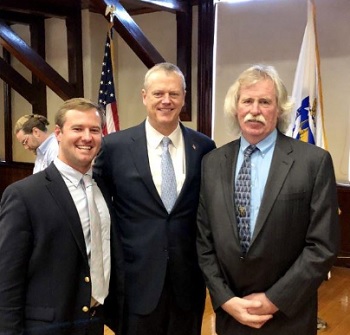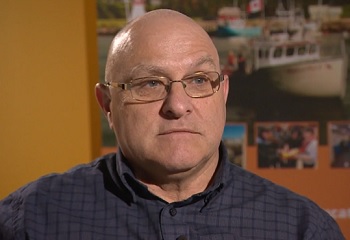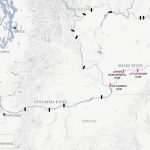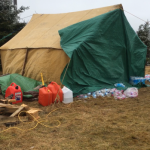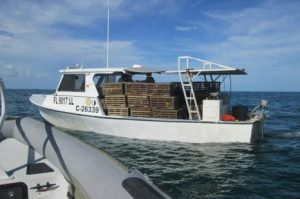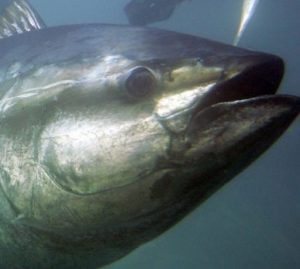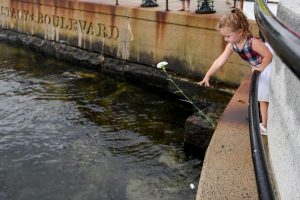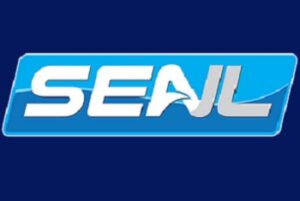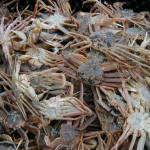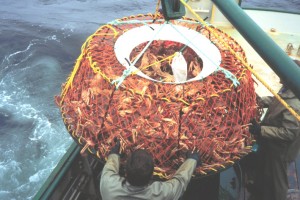Monthly Archives: April 2019
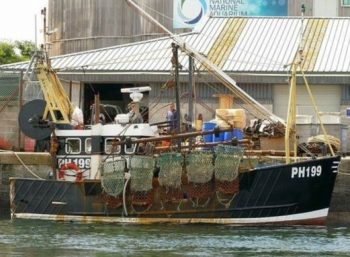
Plymouth fisherman’s death was ‘an accident’ inquest finds
The death of a fisherman who drowned off the coast of Plymouth has been ruled as an accident. Tony Jones died in September 2017 after his trawler overturned while he was fishing near the Eddystone lighthouse. Mr Jones’ son Nick Jones and crew member Chris Wonnacott were found clinging to the upturned hull of the boat. Following an inquest, a jury returned a verdict of accidental death. >click to read<15:57
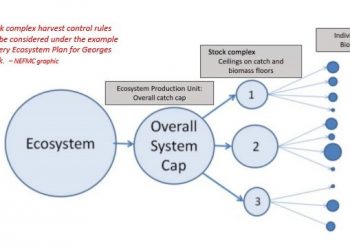
N.E. Fishery Management Council Hosts Offshore Wind Session; Discusses EBFM, Commercial eVTRs, and Research Set-Aside Program Review
Council Hosts Offshore Wind Special Session; The Council reaffirmed its commitment to stay engaged in tracking ongoing offshore wind developments and will continue to provide comments during appropriate opportunities along the way. All presentations and documents are available – Ecosystem-Based Fishery Management (EBFM), Commercial Electronic Vessel Trip Reporting (eVTR), ResearchSet-Aside (RSA) Program Review, lots of links! >Click to read the various details of these issues.<13:18
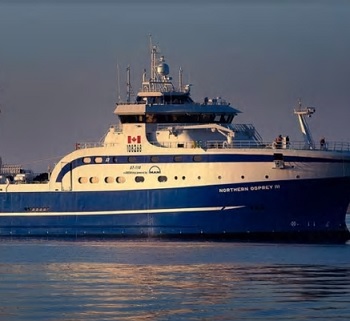
MV Northern Osprey III is equipped with most up-to-date, ‘green’ technology
Scott Nichols, president and CEO of MV Osprey Ltd., says when the company set out to build the Northern Osprey III in 2017, it went out of its way to make sure the systems on board were as environmentally friendly as possible. “Our main engine … it’s more environmentally friendly, as far as fuel consumption goes,” Nichols said. He said the ship is also able to recycle as much generated heat as possible, instead of letting it go up the stacks and out into the air. >click to read<12:46
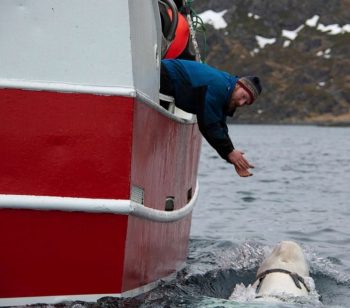
A Russian Spy Whale Defects?
The sighting of a beluga whale wearing a Russian-made harness has caused media speculation that the animal may have come from a Russian military facility. The whale was recently seen swimming alongside fishermen off the coast of Norway. “We were going to put out nets when we saw a whale swimming between the boats,” one of the fisherman, Joar Hesten, told Norwegian broadcaster NRK. “It came over to us, and as it approached, we saw that it had some sort of harness on it.” >click to read<11:30
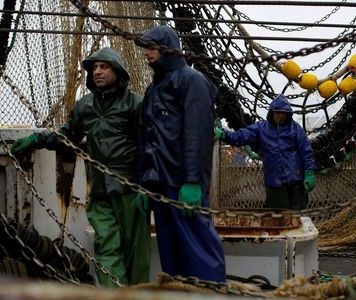
Danish fishing communities fear Brexit could sink them
In the small fishing town of Thyboron on the northwestern coast of Denmark, many fishermen worry the British waters they have become increasingly dependent on will be out of reach when Britain leaves the European Union.,,, Since the 1970s, EU fishermen have had access to British waters under a deal, that many in Britain saw as unfair. Now some see Brexit as a chance to “take back control” of their waters and keep foreign vessels out. “This town could end up closing down because of Brexit,” says fisherman Michael Bork, 36, who has been fishing since the age of 10. 31 images>click to read<10:40
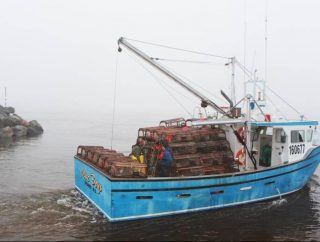
Weather delays lobster season opening for Nova Scotia, P.E.I. fishers
Setting day in lobster fishing areas 24 and 26A has been delayed with high winds being blamed for the postponement. “We’re fishermen, we expect things like this really. We’re weather dependent,” said Alan MacCarthy who is a lobster fishermen out of Caribou Wharf in Pictou County, and member of the Northumberland Fishermen’s Association.,,, “Environment Canada says that Thursday, Friday and Saturday will be good days but it’s giving wind again for tomorrow and again for Wednesday,” said Ronnie Heighton, vice-chair of the Gulf of Nova Scotia Planning Board. >click to read<09:34
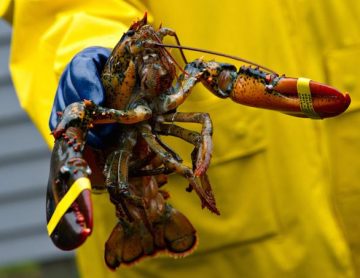
Daunting task begins: Reducing lobster gear to save whales
The interstate Atlantic States Marine Fisheries Commission met Monday outside Washington to discuss the implementation of the new rules, which are designed to reduce serious injuries and deaths among whales by 60 percent.,,, The interstate Atlantic States Marine Fisheries Commission met Monday outside Washington to discuss the implementation of the new rules,,,, Colleen Coogan, who coordinates the federal government team designed to protect the whales, said during the meeting that cooperating with Canadian authorities is also going to be very important. “We’ve set a pretty high bar,” Coogan said. “They’re going to have to show that their measures provide similar protections to right whales.” >click to read<08:58
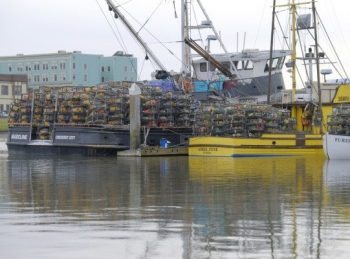
‘Desperately needed’: Congress OKs more than $29 million in disaster relief for fisheries
It’s taken four years but fishermen along the North Coast who have seen crab and salmon seasons truncated and even closed altogether will finally see some relief after $29.65 million in federal disaster relief funding was approved by Congress. It was in the 2015-16 year the Dungeness crab fishery and the Yurok Chinook salmon fishery both collapsed due to poor water quality. Despite $200 million in relief funding made available in 2018, the release of the money was delayed by the U.S. Department of Commerce and it took a letter from U.S. Rep. Jared Huffman and Rep. Jackie Speier to get the ball rolling again last year. >click to read<07:58
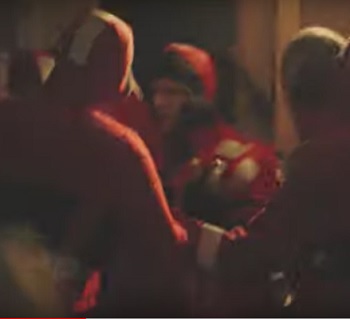
Alaska Ranger: “Shipwrecked in Alaska”
On the night of March 23, 2008, most of the crew sleeps while fishing vessel Alaska Ranger makes her way to the rich fishing grounds off the coast of Alaska. As the Engineer makes his nightly rounds, he discovers a serious flood in the rudder room. He raises the alarm and the captain issues a Mayday call.,,, DISASTERS AT SEA is an original new docuseries airing on Tuesdays at 10 p.m. EST on Discovery Canada (US viewers can check out Smithsonian Channel). Facts about the Alaska Ranger: >Video trailers, click to read<15:10

Federal Relief for Fisheries Disasters Dating From 2015 Finally Available
Representatives Jared Huffman (D-San Rafael) and Jackie Speier (D-Hillsborough) today announced that $29.65 million in long-awaited federal assistance will be finally delivered on June 1st to North Coast fishing communities that suffered major economic impacts due to fisheries disasters dating back to 2015.,,, That federal funding, now finally announced, will be provided in June to the Pacific States Marine Fisheries Commission to distribute to individuals and businesses dependent on fishing. >click to read<14:21
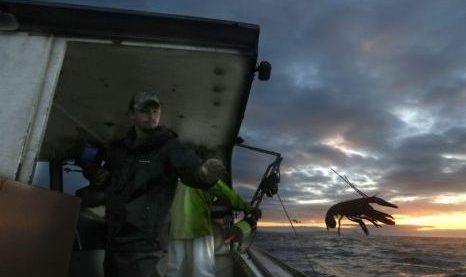
Maine Lobstermen Face 50 percent Trap-Rope Reduction To Protect Right Whales
Representatives from 14 Atlantic coast states participated in the four-day consensus-building project, including fishermen scientists, state regulators and conservation groups. The stakes were highest for Maine’s lobster industry, which landed $484 million worth of the crustaceans last year – the most valuable single-species fishery in the nation. The Cape Cod Times reports that Massachusetts and New Hampshire agreed to a 30% cut in the number of vertical lines, and to use ropes that break at a reduced weight. “The regulations proposed here today are a big ask,” says Patrick Keliher, the commissioner of Maine’s Department of Marine Resources. >click to read<13:06
NOAA – Team Reaches Nearly Unanimous Consensus on Right Whale Survival Measures ->click to read<15:50
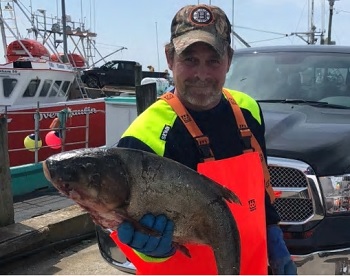
Canada closer to allowing Asian carp as lobster bait, depending on test outcomes
The Canadian Food Inspection Agency says it is prepared to accept invasive Asian carp from the United States as bait for the lobster industry, provided U.S. authorities can meet a number of conditions including proof the carcasses pose no disease threat. “If the U.S. can meet these requirements, Canada is willing to accept the import of dead, eviscerated silver carp for use as bait,” CFIA spokesperson Brian Naud said in a statement. There is interest in both countries in using Asian carp to supply their respective lobster fisheries which are experiencing a bait shortage as traditional sources decline: herring in the United States and mackerel in Canada. The state of Maine is poised to make a decision on Asian carp as a bait source by the end of May. >click to read<11:34

Job Opening: Assistant Plant Manager – West Coast Seafood – Vancouver BC
Are you passionate about the dynamic West Coast fishing industry? Join Aero Trading as an Assistant Plant Manager and develop your leadership skills while sharing your industry knowledge and expertise! About You- You lead by example and bring a positive attitude that motivates those around you. You are passionate about the seafood or commercial fishing industry. Whether it’s helping unload at the dock or getting your hands dirty on the processing line, you are willing to roll up your sleeves to get the job done. >click to read the details<11:10
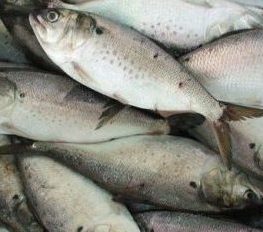
Our view: Abundant menhaden draw whales and endless dispute over its fishery
A sustainable and growing menhaden fishery, though, isn’t enough for some. Since at least 1888, when the Rod and Reel Association claimed commercial menhaden boats were taking fish better left as food for species they liked to catch and eat, people have fought over the best use for menhaden. In the fall of 2017, a coalition of environmental and sport fishing interests, partly led by a unit of the Pew Charitable Trusts, successfully lobbied the fisheries commission to switch to a unique new management approach for a fishery, one based on estimates of how the menhaden population affects other fish and wildlife that prey upon it. >click to read<10:42
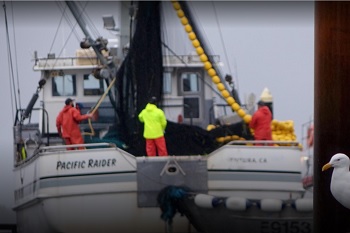
Coos Bay Fishermen Brace For Impacts From Jordan Cove And Channel-Widening Projects
The headland that look out over the ocean entrance to Coos Bay has been given a rather descriptive name by local fishermen. “We call it Chickenshit Point,” says Nick Edwards chuckling. Perhaps it’s because the people watching from up on the hill aren’t considered as brave as those on the boats crossing the dangerous Coos Bay bar below. “A lot of us will come up here and watch. Everybody goes, ‘He’s made it across the bar. He’s made it across the bar!’” he says. >click to read<09:45
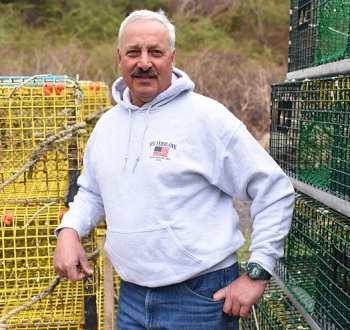
Sandwich lobsterman raises concerns about offshore wind farms
After 40 years in the business, Sandwich commercial lobsterman Marc Palombo foresees the presence of fog in the summer months as his biggest worry as he considers whether or not to navigate through the proposed swath of offshore wind turbines south of the Islands.,,,The Coast Guard has begun a study of vessel traffic — a Port Access Route Study, or PARS — in and around the seven offshore energy lease areas south of the Islands, off both Massachusetts and Rhode Island, to determine if any new vessel travel routes are necessary to improve navigational safety,,, >click to read<22:17
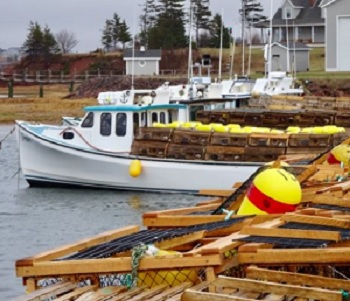
Spring lobster season on P.E.I. delayed due to weather
The Department of Fisheries and Oceans will decide Monday whether to open P.E.I.’s spring lobster fishery on Tuesday. Setting day was originally scheduled for Monday, but DFO has delayed the opening due to high winds, according to a department spokesperson Steve Hachey. He said the decision came after consulting with industry representatives on Saturday. A conference call between DFO and industry representatives is scheduled for Monday morning to discuss if it is safe to open the lobster season on Tuesday. About 1,100 fishermen take part in the spring fishery. >click to read<16:22
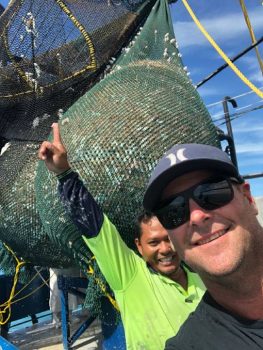
An explosion of lucrative banana prawns – Flood disaster turns a profit downstream in the Gulf of Carpentaria
Raptis Pearl skipper Mick McGillivray, with one of his deckhands, celebrated the best start to the banana prawn season in the Gulf of Carpentaria since 1974. A two billion dollar damage bill to Queensland graziers, with an AgForce estimate of 664,000 head dead after February floods – the worst since 1974 – has been compensated to some degree by the best start to the banana prawn harvest in the southern end of the Gulf of Carpentaria for decades. Hardest hit areas, like Julia Creek and McKinlay Shire where 274,000 head were lost, drain into the Flinders River which has nourished an explosion of lucrative banana prawns in warm shallow waters just beyond its mouth. >photo’s, click to read<14:03
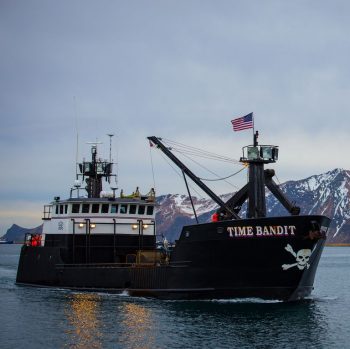
This Is Why ‘Deadliest Catch’ Won’t Feature the Time Bandit Anymore
Discovery’s Deadliest Catch season 15 returned earlier this month, with plenty of veteran stars taking the helm for another round of high-stakes crab fishing. Even Captain Sig Hansen made a comeback to the docuseries, despite his big on-screen reveal that he suffered a second heart attack last year. However, there’s one major player that unfortunately won’t be gracing our television screens this time around—the Time Bandit commercial fishing boat. So, with the current Deadliest Catch season well underway, where’s the Time Bandit now, and could we finally see it back on TV next year?>click to read< Sadly, no—it’s currently getting sold. >click for listing<13:05
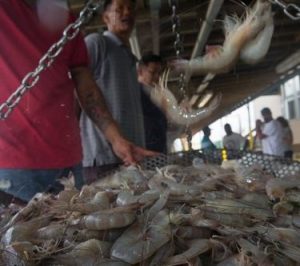
House Bill 335 – Louisiana seafood labeling bill clears hurdle
Louisiana seafood processors are claiming victory after an early win for a measure they’ve sought for years. They say in many Louisiana restaurants, you’re eating at your own risk, and they hope state lawmakers are going to pass laws to change that. When it comes to the production of shrimp and crawfish, few states measure up. “If you’re looking at shirmp and crawfish, it’s a $500 million industry,” said Louisiana Agriculture Commissioner Mike Strain.,,, “For every 10 shrimp you eat, no matter where you live, including Louisiana, nine and a half of those are imported from somewhere else,” said David Veal with the American Shrimp Association. >Video, click to read<11:21
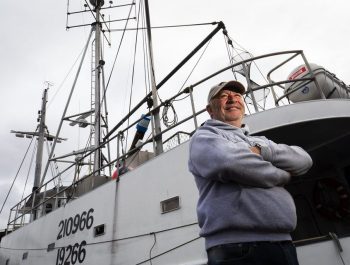
Alaskan halibut, caught by a century-old Seattle boat, provides a glimpse of Amazon’s strategy with Whole Foods
From the deck of his 106-year-old halibut schooner, undergoing a seasonal overhaul at Fisherman’s Terminal in Seattle, skipper Wade Bassi has better insight than most into what’s happening at Amazon-owned Whole Foods Market, at least as pertains to the product he knows best. While he doesn’t buy halibut much — he’s got a freezer full of it — Bassi, 43 years a fisherman, keeps an eye on how it’s handled and presented in the grocery stores and fish markets. >click to read<09:53
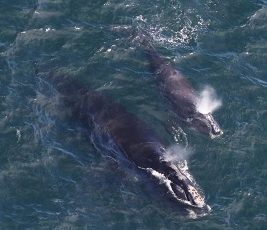
‘Neither country can save the species on its own’ – Reduce amount of rope in water to protect right whales, says U.S. advisory group
The National Oceanic and Atmospheric Administration (NOAA) Atlantic Large Whale Take Reduction Team held four days of meetings ending Friday.
The group proposes the number of lines in the water be reduced by up to 50 per cent in some jurisdictions and that the breaking strength of buoy lines be reduced to 1,700 pounds (771 kilograms) or less. Now the onus is on the U.S. National Marine Fisheries Service to consider acting on those recommendations. While researchers from both countries agree that there needs to be less rope in the water, the recommendations are a different approach to that of the Canadian government, which imposed fisheries closures in the Gulf of St. Lawrence last year and again in 2019. >click to read<09:20
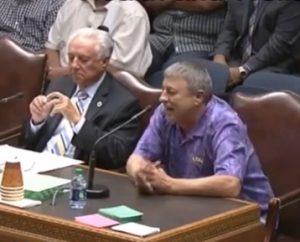
This! A Cajun protest for genuine Louisiana seafood- WATCH!
Dean Blanchard is a well known shrimper from Grand Isle. He paid a visit to the State Capitol on Wednesday. He wants the House to HB 335. It would mandate that restaurants display signage disclosing whether their crawfish or shrimp came from a country outside the United States. “What we have here is the restaurants are really committing fraud on their customers,” Blanchard said in the Health and Welfare Committee meeting. “Look on the wall, there’s pictures of shrimp boats, pictures of our Cajun culture. I’m required to label everything I put out. The store is required to label everything they sell you. Why isn’t the restaurant required to,,, >Video, Click to watch< 16:06
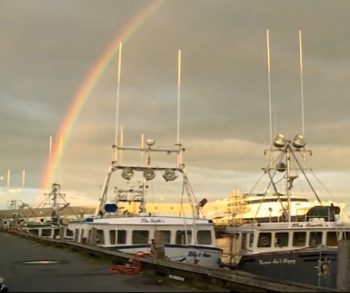
‘He died trying to provide for us’: Day of Mourning a sombre reminder of workplace safety
For Michelle D’Entremont, there’s a clear defining moment in her life: the day her father died. “It’s weird. I feel like there’s a life before the accident and there’s a life after,” she said. “I feel like a completely different person.” D’Entremont’s father Lewis was killed nearly 15 years ago when he fell off a boat while fishing for herring off Pubnico, N.S., where the family lived. At the time, D’Entremont was a university student in Halifax. While she knew a fisherman’s life was difficult, she never imagined her “strong and powerful” father was ever at risk. >Video’s, click to read<14:13
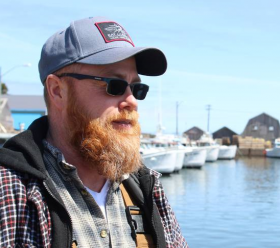
Malpeque Harbour channel plugged; fishermen remaining tied up as dredge works at site
When P.E.I.’s lobster fleet heads out for setting day on Monday, their fellow captains in Malpeque Harbour might be left watching from the wharf.
An unprecedented amount of sand has moved in over the winter to choke off the narrow channel that gives the small harbour on P.E.I.’s north shore access to the Gulf of St. Lawrence. A dredger is on site and working to get the passage open but, with setting day tentatively set for April 29, fishermen who use the wharf are worried – and frustrated. >click to read<13:24
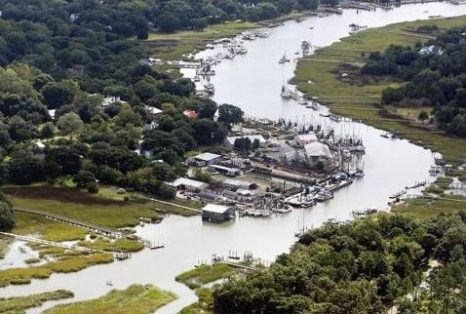
Working Waterfront – One of last SC commercial fishing hubs could close. Land trust seeks funds to save it.
Larry Mcclellan can look from the porch of his century old farmhouse out across Jeremy Creek where the shrimp boats rock under their hanging nets. Mcclellan captains one of the boats there and his son captains another. The creek, which leads to the rich Bulls Bay shellfish waters, is his livelihood and his life. The hub of it all, where the boats are moored, is the Carolina Seafood dock. That’s how integral Carolina Seafood owner Rutledge Leland’s business is to McClellanville, the modest fishing village north of Charleston. >click to read<12:44
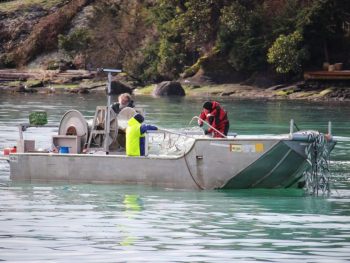
David MacKay – Strait to the source, a fisherman’s view of B.C.’s herring fishery
The herring fishery “war” in B.C., as referred to in a previous publication in the Tyee, began with a petition and has since devolved into a fight that pits conservationists against fishermen. This fight does nothing but create space between these two sides that blocks any opportunity for reasoned dialogue or conversation. Ian Gill’s article last month only serves to bolster this narrative. By painting conservationists as saints and fishermen as villains, you dehumanize the people and communities whose livelihoods, and indeed lives, have been built on responsible stewardship of our coast. >click to read<10:37
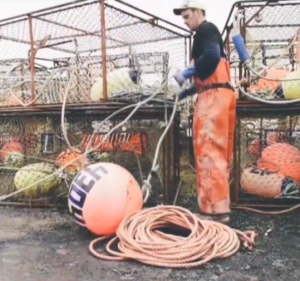
Alaska – Study reveals changes in Commercial Fisheries over three decades
Anne Beaudreau is an associate professor of fisheries, at University of Alaska Fairbanks College of Fisheries and Ocean Sciences based out of Juneau.
She and other researchers have conducted a study compiling 30 years of commercial fisheries catch and revenue data to find how participation in fisheries in Alaska have decreased, and specialization has increased.,,, “Beaudreau said people are fishing for fewer species and with fewer permit types than they were three decades ago. She also explained the quota program that was implemented in the mid- 90’s. >click to read<09:27






